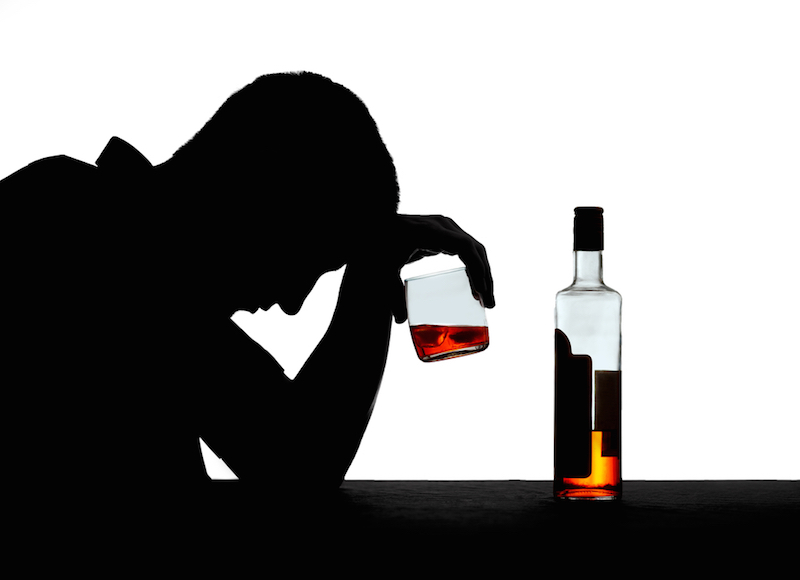Alcohol Disorders: Nearly 1 in 3 Adults Are Problem Drinkers

Get the world’s most fascinating discoveries delivered straight to your inbox.
You are now subscribed
Your newsletter sign-up was successful
Want to add more newsletters?

Delivered Daily
Daily Newsletter
Sign up for the latest discoveries, groundbreaking research and fascinating breakthroughs that impact you and the wider world direct to your inbox.

Once a week
Life's Little Mysteries
Feed your curiosity with an exclusive mystery every week, solved with science and delivered direct to your inbox before it's seen anywhere else.

Once a week
How It Works
Sign up to our free science & technology newsletter for your weekly fix of fascinating articles, quick quizzes, amazing images, and more

Delivered daily
Space.com Newsletter
Breaking space news, the latest updates on rocket launches, skywatching events and more!

Once a month
Watch This Space
Sign up to our monthly entertainment newsletter to keep up with all our coverage of the latest sci-fi and space movies, tv shows, games and books.

Once a week
Night Sky This Week
Discover this week's must-see night sky events, moon phases, and stunning astrophotos. Sign up for our skywatching newsletter and explore the universe with us!
Join the club
Get full access to premium articles, exclusive features and a growing list of member rewards.
About 30 percent of adults in the United States misuse alcohol at some point in their lives, but the large majority don't seek treatment, a new study suggests.
Researchers also found that in a given year, about 14 percent of American adults misuse alcohol, which researchers refer to as having "alcohol use disorder." This yearly rate translates to an estimated 32.6 million Americans with drinking problems during a 12-month period.
"The study found that the risk of alcohol use disorders appears to be going up in the last decade," said George Koob, director of the National Institute on Alcohol Abuse and Alcoholism (NIAAA), the agency that conducted the research.
Not only is problem drinking becoming more widespread, but the intensity of drinking is also going up, Koob said. Instead of having three drinks on a night out, more people may be drinking heavily and having at least five, or even eight or 10 drinks at a time.
"Alcohol use disorder" is a relatively new term. Prior to May 2013, people who had drinking problems were diagnosed with either "alcohol abuse" or "alcohol dependence."
Now, rather than categorizing these problems as two separate conditions, the latest edition of the American Psychiatric Association's "Diagnostic and Statistical Manual of Mental Disorders" (American Psychiatric Publishing, 2013) considers the two a single diagnosis known as "alcohol use disorder." A person with the disorder is further classified as having a mild, moderate or severe form of the condition, based on the number of symptoms the individual has. [7 Ways Alcohol Affects Your Health]
Adults who meet at least two of the 11 diagnostic criteria are considered as having an alcohol use disorder. Criteria include having strong cravings for alcohol, making unsuccessful efforts to cut down consumption and drinking causing problems at work, home or school.
Get the world’s most fascinating discoveries delivered straight to your inbox.
The results, published online today (June 3) in the journal JAMA Psychiatry, are the first to estimate nationwide prevalence rates for alcohol misuse since the diagnostic criteria were changed.
Few seek treatment
In this large study, the researchers, led by Bridget Grant, a senior investigator at the NIAAA, interviewed about 36,000 adults in the United States, ages 18 and older, over a 14-month period during 2012 and 2013. Participants were asked about their drinking habits both during the past year and during their lifetimes, as well as whether they had other mental health conditions or substance abuse problems.
The findings showed that men, whites and Native Americans were at greatest risk of developing drinking problems. The research also suggested that adults who misused alcohol were more likely to have major depression, bipolar disorder and personality disorders.
Although more people in the United States are drinking heavily and having problems with alcohol misuse at earlier ages, the data also revealed that only 20 percent of Americans ever get any treatment. Sources of treatment included 12-step programs, medications, behavioral therapies, alcohol counseling or alcohol abuse treatment facilities.
There may be a stigma attached to seeking treatment for alcohol problems that makes some individuals feel as if they are bad people and have made bad choices in their lives, Koob told Live Science. He said another reason people may be hesitant to get help is that they might not know there are currently several effective medications on the market.
People could also be in denial of about their problems with alcohol and unwilling to admit that alcohol can kill and that heavy drinking can be dangerous and seriously affecting their lives, Koob said.
Alcohol contributes to more than 200 diseases, including liver problems, cancers and injuries, and is responsible for car accidents, disability and premature death, according to the National Institute on Alcohol Abuse and Alcoholism. (For more on alcohol's effect on health, see the institute's site "Rethinking Drinking.")
"This study is shining a light on a serious problem that many Americans might not realize is there," Koob said, adding that people might not understand how much alcohol affects the cost of medical care and society in general.
Follow Live Science @livescience, Facebook & Google+. Originally published on Live Science.
Cari Nierenberg has been writing about health and wellness topics for online news outlets and print publications for more than two decades. Her work has been published by Live Science, The Washington Post, WebMD, Scientific American, among others. She has a Bachelor of Science degree in nutrition from Cornell University and a Master of Science degree in Nutrition and Communication from Boston University.
 Live Science Plus
Live Science Plus










